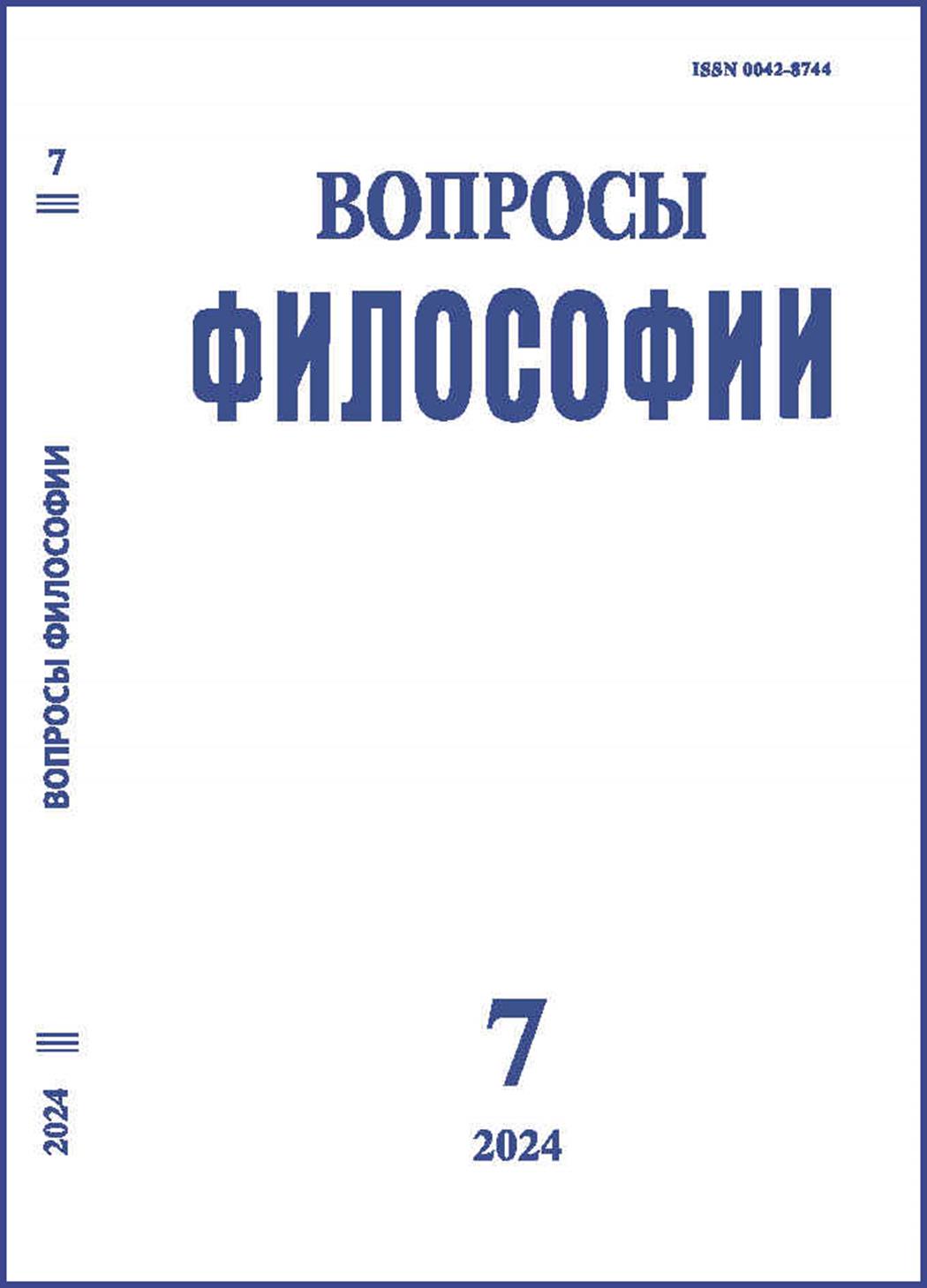What Are the Differences between Traditional Indian Epistemic Culture and Classical Western Epistemic Culture?
DOI:
https://doi.org/10.21146/0042-8744-2024-7-139-149Keywords:
differences of Indian epistemic culture, epistemic culture, intercultural philosophy, Karin Knorr-Cetina, conventional truth, pramāṇavāda, reason, rationality, epistemic culture.Abstract
The paper presented to the reader’s attention pursues two goals. The first is
a substantiation of the productivity of the concept “epistemic culture” (hereinafter – EC) as a tool of historico-philosophical intercultural research by
the example of its application to the interpretation of the meanings of Indian
logico-epistemological texts. The second is a demonstration of differences in understanding the purposes and ideals of cognition in traditional Indian EC, and
in the Western classical EC with its scientific orientation. Wholeness of the foundations of traditional theoretical knowledge in India, and the leading role of religion in the process of its elaboration (1) led to a different understanding
of the aims (2) and ideals (3) of cognition than those which took shape in Western theoretical knowledge, and which became the basis of the scientific revolution of the XVII century. The absence of the concept of the Divine Reason in Indian culture also prevented the formation in EC of the concepts of absolute
(4) and objective (5) truth, human reason (6) and rationality (7) as criteria for
the truth results of cognition. Indian philosophers placed the superintelligent
comprehension (anubhava, pratibhāsa) (8) of the supreme truth (paramārtha)
at the top of the hierarchy of cognitive abilities. The eight listed features
of the Indian EC determined significant differences in the orientations of civilizational development in India and in the West: invariable orientation to the life
“according to dharma”, getting rid of the suffering of the material world –
in the Indian civilization, and to a material prosperous life based on technogenic
development – in the West from the modernity

